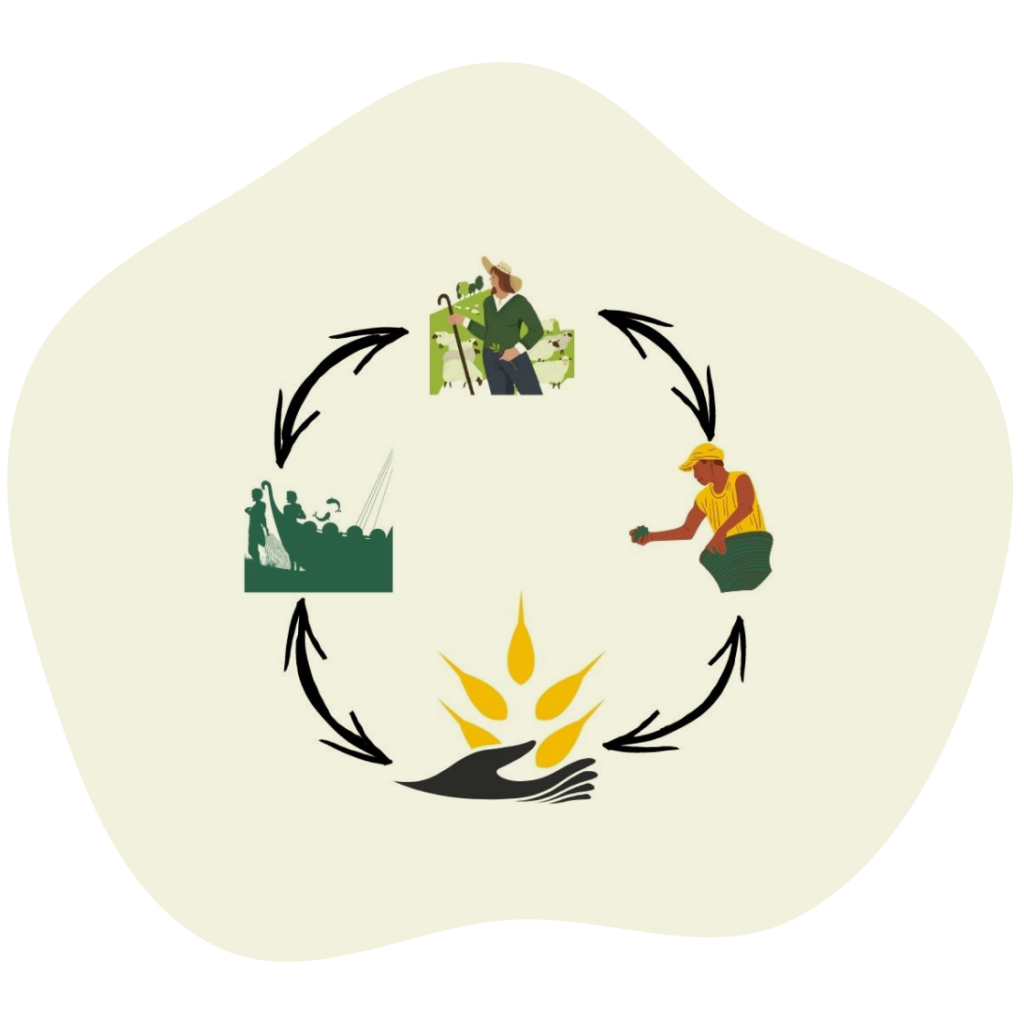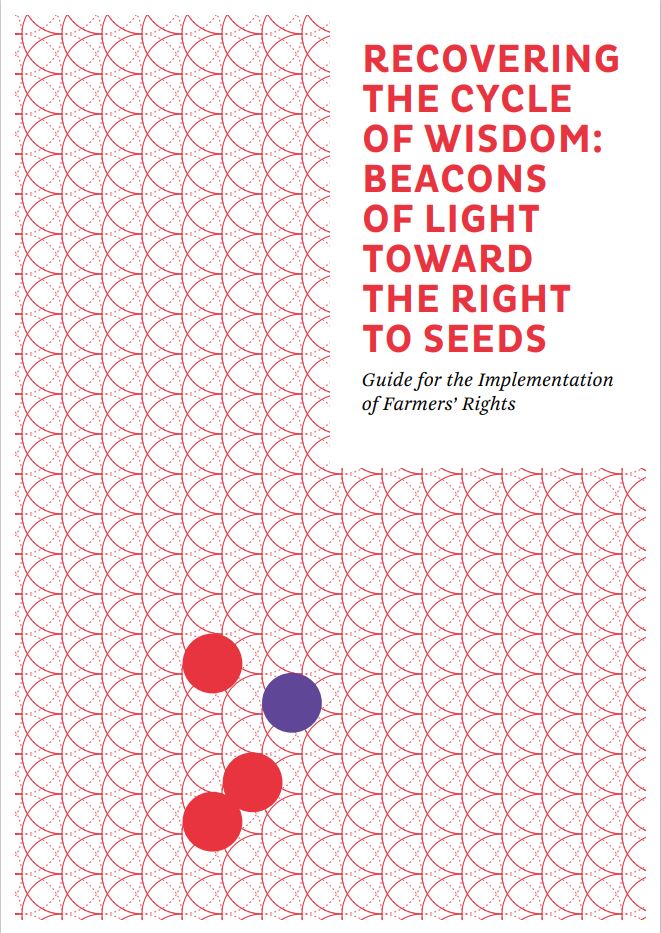Guy Kastler – La Via Campesina (LVC) France

Agricultural biodiversity
Declaration of Nyéléni, 2007
About the Working Group
Presentation of the working Group
In Aiguillon (France), in September 2012, the IPC formalized a Working Group on Agricultural Biodiversity[1] focused, initially, on farmers’ seeds, including the implementation of Farmers’ Rights, with oversight of all issues and forums related to the governance of agricultural biodiversity. For many years, IPC members have been involved in these issues concerning the conservation, sustainable use, development and governance of agricultural biodiversity, which underpins food sovereignty.
Agricultural biodiversity continues to be severely threatened by industrial commodity production – smaller scale and ecological food production enhances it. Agricultural biodiversity depends on the women and men peasant farmers, herders and livestock keepers, artisanal fishers, forest dwellers, Indigenous Peoples and other small-scale food providers, who feed the world. A challenge is to ensure that their voices dominate the discourse.
Many IPC members’ organizations worldwide are involved in the IPC Working Group on Agricultural Biodiversity. During time, the Working Group started dealing with a wider range of issues regarding agricultural biodiversity.
Agricultural biodiversity continues to be severely threatened by industrial commodity production – smaller scale and ecological food production enhances it. Agricultural biodiversity depends on the women and men peasant farmers, herders and livestock keepers, artisanal fishers, forest dwellers, Indigenous Peoples and other small-scale food providers, who feed the world. A challenge is to ensure that their voices dominate the discourse.
Many IPC members’ organizations worldwide are involved in the IPC Working Group on Agricultural Biodiversity. During time, the Working Group started dealing with a wider range of issues regarding agricultural biodiversity.
Our Work
The IPC Working Group organizes internal meetings, workshops, trainings and consultations on different issues. These meetings are fundamental to: build the capacities of the grassroots organizations; receive feedbacks from the ground; raise the awareness on global issues and negotiations; strengthen the struggles at national and regional levels; raise the voice of small scale producers to the decision-making spaces; strengthen the exchange from farmer to farmer from the North to the South and from the East to the West.
Coordination
-
-
Marciano da Silva – La Via Campesina (LVC) Brazil
-
Antonio Gonzalez – Movimiento Agroecológico de América Latina y el Caribe (MAELA) Guatemala
Facilitation
Centro Internazionale Crocevia is the NGO responsible for the facilitation of the Working Group: contacts with other NGOs, Governments or institutions; logistics; advocacy and lobbying in Rome.
Participation in policy making processes
to influence the decisions on different issues at regional and international levels
The International Treaty on Plant Genetic Resources (ITPGRFA), especially on article 6 (on sustainable use) and article 9 (on Farmers’ Rights).
The Convention on Biological Diversity (CBD) and its protocols: Nagoya Protocol and Cartagena Protocol.
The Commission on Genetic Resources for Food and Agriculture (CGRFA) of the FAO.
Main issues
Farmers’ seeds

New biotechnologies or synthetic biology
Digitalization (or de-materialization) of genetic resources
Biodiversity in agroecology
Animal biodiversity
Marine genetic resources
Forest genetic resources
Climate change
Invertebrates and microorganisms
Campaigns
Our guide on Farmers' Rights to seeds
This manual is a guide for peasant movements and organizations willling to fight for the right to seeds to be properly protected and promoted by national legislation




